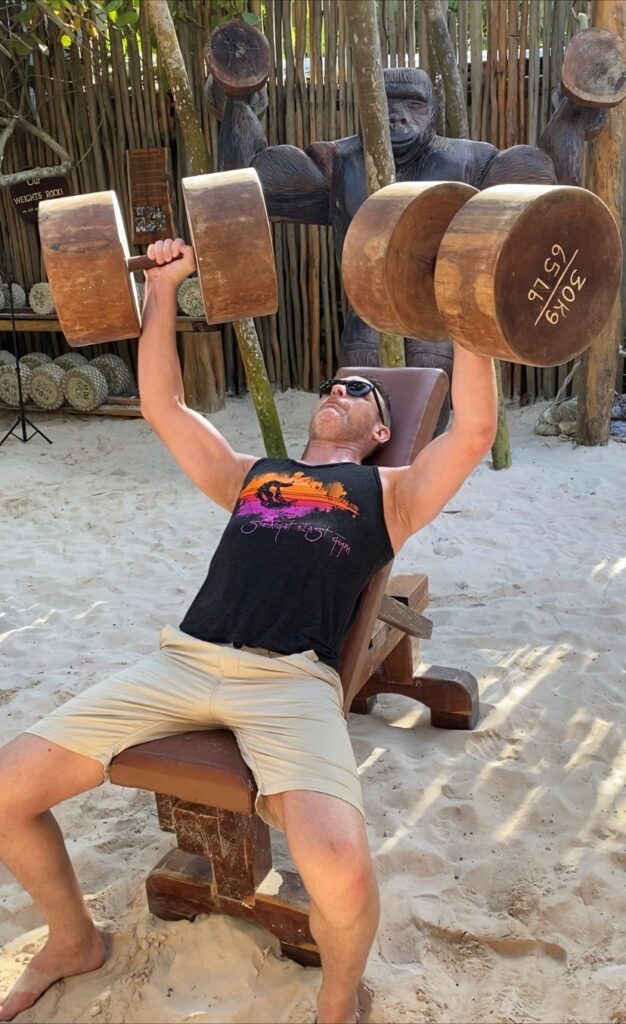You hear me talk quite a lot about the First Principles of Jiu-Jitsu pertaining to skill development, but First Principles exist in everything, not just grappling.
It’s no different in exercise. Specifically resistance training for longevity and injury prevention in grappling.
Here are a few important things to understand:
1) In every area, there are no more than 1-3% following a true first principles approach, while the rest are operating according to reasoning by analogy –– i.e., status quo conventional wisdom, opinion, hearsay, etc.
2) Most experts and authorities we look to as reliable sources of information are also operating entirely or mostly from reasoning by analogy as well. When you consider conflicting research, the problem isn’t with the scientific method; it’s with the biases and incentive structures of the people who design the research.
3) Those experts and authorities can absolutely produce results for themselves and / or for others, sometimes even world class results; however (and this is where it gets quite tricky), this fact in no way means that their methods are ideal, especially if one is optimizing for long-term success.
You can start to see how thinking and acting from a first principles framework is very difficult and often counter-intuitive to our normal “operating system.”
And especially when it comes to #3, you can start to see how dicey and misleading the concept of “modeling success” can be….
It’s very often fraught with logical fallacies and biases like Appeal to Authority and Confirmation Bias.
And as I mentioned, the trickiest part is that sub-optimal methods can work. That’s precisely why confirmation bias exists! But I’m interested in what provides the best results, as efficiently and safely as possible, in the shortest amount of time.

A little personal background on this….
Many moons ago when my main job was personal training, I was doing a ton of research and realized just how ridiculous my days of following Muscle & Fitness and the other bodybuilding and strength training mags had been.
This led me to adopt an exercise philosophy that was extremely well documented by data, but also pretty rare.
But as I got more obsessed with my martial arts training, over time I did exactly what most people do and started to look at what types of strength & conditioning programming other athletes were using.
I bought the rationales for why they trained that way.
But then a few years ago, after a suggestion from a friend and fellow black belt piqued my interest, I wound up doing another deep dive inquiry to really flesh out the first principles of exercise.
And lo and behold, it brought me full circle to what I was doing all those years ago as a PT.
But this time I went even deeper. Not only for myself (as a middle aged Jiu-Jitsu practitioner and coach), but also because I wanted to understand what would be best for all of you.
On a macro level, here’s what I can tell you for starters:
1. Just because someone has the results you want does not mean that you should follow their “program.” It’s very likely that there are quite a number of variables you even thought to consider if you follow this rationale.
And even if you get what you consider excellent results from a particular program, that’s not to say that you couldn’t be getting the same or even better results more efficiently elsewhere. Not to mention there might be potential negative downstream second and third order consequences down the road you may not be aware of.
That’s why you want to drill this into your brain:
Principles, Not Programs
Programs always follow from principles, never the other way around.
2. If we’re specifically talking about exercise (whether as a supplement to Jiu-Jitsu or for other motivations) the vast majority of people are doing far too much volume, performing movements inefficiently, and have been led to believe certain “facts” about exercise that are simply untrue.
I, for sure, was one of them.
In fact, I was quite surprised to find that some of these common beliefs I had come to adopt as reality didn’t hold up to first principles deductive logical scrutiny.
But I made the shifts, and have been very happy that I did. If you want to supplement your Jiu-Jitsu with resistance training (which I emphatically recommend), you would be better served by much less training volume and frequency, but with much greater intensity and focus on proper technique.

